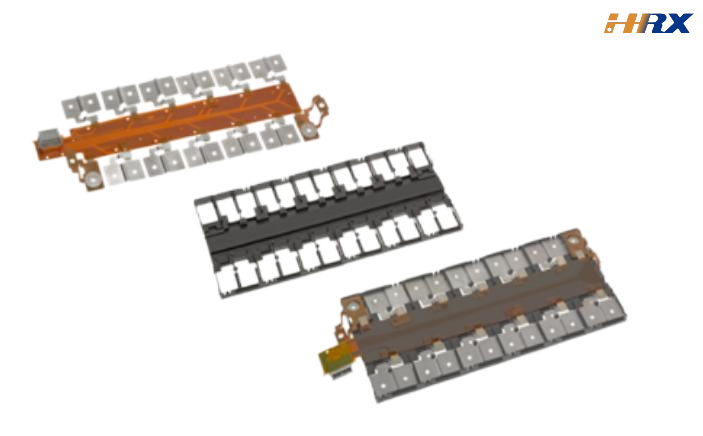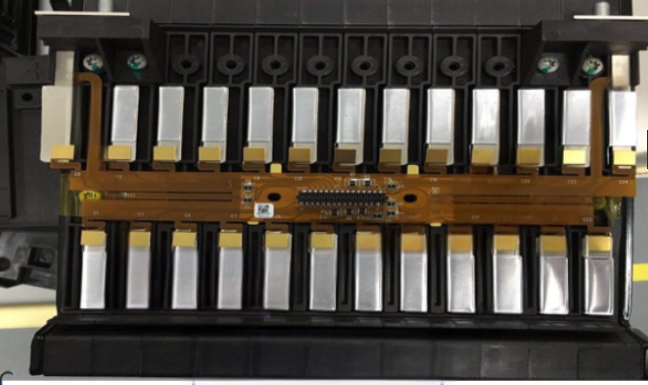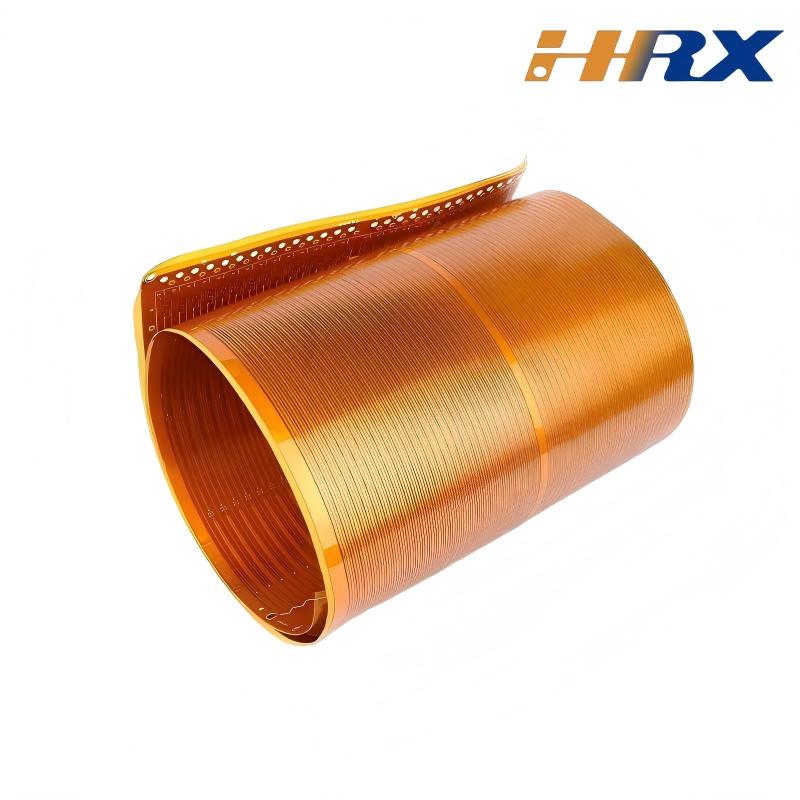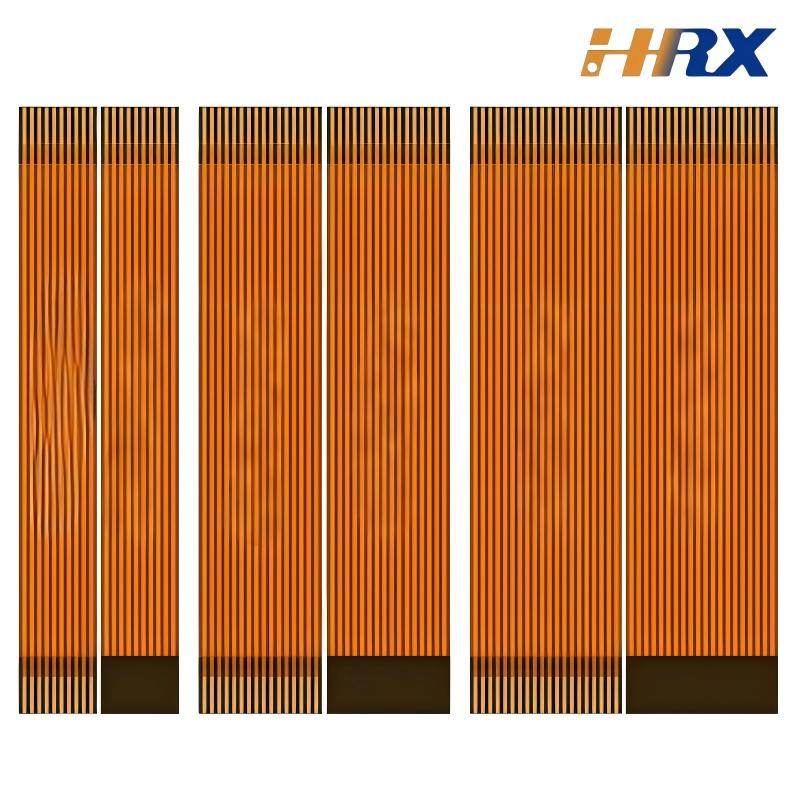Search
The Key Role of FPC in the Development of Electric Vehicles from the Manufacturer's Perspective
- May 12,2025
-
Share
In the dynamic and rapidly expanding realm of electric vehicles (EVs), technological innovation stands as the linchpin for progress. Flexible Printed Circuits (FPCs), a cornerstone of modern electronics, have emerged as a critical enabler, driving the evolution of EV technology. As Shenzhen Huaruixin Electronics Co., Ltd., a globally recognized ODM/OEM manufacturer specializing in the design, development, and large - scale production of FPCs, PCBs, and Rigid - Flex Printed Boards, we possess in - depth expertise in harnessing the potential of FPCs for the EV industry.

1. Unparalleled Electrical Connectivity with Advanced Flex Interconnects
At the heart of every electric vehicle lies a complex electrical ecosystem, and FPCs play a fundamental role in ensuring seamless electrical connectivity. EVs house a multitude of critical components, including lithium - ion battery packs, high - performance electric motors, sophisticated motor controllers, and an array of sensors for functions like battery management, vehicle stability, and environmental monitoring. FPCs, leveraging Flexible Interconnect Technology, serve as the neural network, enabling the efficient transmission of electrical signals and power.
Our FPCs at Shenzhen Huaruixin Electronics are engineered using state - of - the - art manufacturing processes, such as direct imaging and laser drilling. These techniques, combined with high - quality materials like polyimide substrates and electroless nickel immersion gold (ENIG) surface finishes, ensure superior electrical performance. With low insertion loss, high impedance control, and excellent crosstalk suppression, our FPCs meet the stringent requirements of EV electrical systems. In a Battery Management System (BMS), for instance, FPCs equipped with High - Density Interconnect (HDI) technology are used to connect individual battery cells to the BMS controller. This precise connectivity allows for real - time monitoring of parameters like voltage, current, and temperature, enhancing battery safety and longevity. The use of FPCs in BMS also reduces the risk of electrical failures caused by loose connections, which is crucial for the reliability of electric vehicles.
2. Space - Efficient Design through Flexible Circuitry
Space optimization is a paramount concern in EV design, and FPCs offer a game - changing solution. Unlike traditional Rigid Printed Circuit Boards (PCBs), FPCs' inherent flexibility allows for three - dimensional routing, making them ideal for maximizing available space within the vehicle. Their thin profile, often as low as 0.1mm, enables installation in confined areas, such as the interior of door panels, under the dashboard, or within the battery enclosure.
Shenzhen Huaruixin Electronics specializes in creating custom - designed FPCs tailored to the unique spatial constraints of EV applications. Our design team utilizes advanced CAD software to generate complex geometries, including curved, folded, and multi - bend configurations. These custom FPCs not only fit precisely into tight spaces but also contribute to a more streamlined vehicle layout. For example, in the EV's infotainment system, FPCs can be routed along the contours of the dashboard, connecting multiple displays, touchscreens, and audio components. This results in a more aesthetically pleasing and ergonomic design, enhancing the overall user experience. Moreover, the reduced space occupied by FPCs allows for the integration of additional features or larger battery packs, further improving the vehicle's functionality and range.
3. Lightweighting and Robust Durability for EV Applications
Weight reduction is a critical factor in enhancing the energy efficiency and range of electric vehicles, and FPCs play a significant role in this aspect. Compared to PCBs, FPCs are significantly lighter, as they do not require a rigid substrate. This weight savings, when aggregated across multiple FPCs used in an EV, can have a substantial impact on the vehicle's overall performance. Additionally, FPCs are designed to withstand the harsh operating conditions of EVs, including high levels of vibration, wide temperature variations (-40°C to 125°C), and exposure to moisture and dust.
Our FPCs are constructed using durable materials with excellent mechanical properties. The polyimide films used in our FPCs offer high tensile strength and flexibility, while the adhesive layers provide reliable bonding between different layers. These features ensure that our FPCs can maintain their integrity even under extreme conditions. In the electric motor assembly, where vibrations can be intense, FPCs with reinforced flex zones and strain relief features are employed. This ensures that the electrical connections remain secure, preventing signal disruptions and potential motor failures. The lightweight and durable nature of FPCs also contribute to reducing the vehicle's maintenance requirements, enhancing its overall cost - effectiveness.
4. High - Density Integration for Advanced EV Systems
The increasing complexity of electric vehicles demands a high level of component integration, and FPCs are well - suited to meet this challenge. With advancements in technology, features such as autonomous driving, vehicle - to - everything (V2X) communication, and advanced driver - assistance systems (ADAS) require the integration of numerous sensors, processors, and communication modules into a limited space. FPCs, with their ability to support High - Density Interconnect (HDI) and multi - layer designs, provide an ideal platform for such integration.

Shenzhen Huaruixin Electronics has extensive experience in manufacturing high - density FPCs with up to 8 layers or more. These multi - layer FPCs can accommodate a large number of components and traces in a compact footprint. In an autonomous driving system, for example, FPCs are used to connect LiDAR sensors, cameras, radar units, and processing units. The high - density integration enabled by FPCs ensures fast and reliable data transfer between these components, facilitating real - time decision - making for safe and efficient autonomous driving. Moreover, the use of FPCs simplifies the wiring harness, reducing the risk of errors during assembly and improving the overall reliability of the system.
In conclusion, FPCs are an indispensable technology in the development of electric vehicles, contributing to improved electrical connectivity, space efficiency, weight reduction, and high - density integration. As a leading manufacturer in the FPC industry, Shenzhen Huaruixin Electronics Co., Ltd. is dedicated to providing cutting - edge FPC solutions that drive innovation in the EV market.
We invite industry professionals, partners, and enthusiasts to explore our comprehensive range of FPC products and services. Visit our website at www.hrxfpc.com to discover more about our capabilities, or contact us via email at sales@hrxfpc.com for detailed inquiries. Let's collaborate and drive the future of electric vehicle technology forward, leveraging the power of advanced FPC solutions.

Let’s talk! We’ll provide the perfect solution for you!
-
 Huaruixin Electronics mainly produces printed circuit boards as the core business, to provide customers with one-stop solutions for FPC/PCB production, components sourcing and Assembly.
Huaruixin Electronics mainly produces printed circuit boards as the core business, to provide customers with one-stop solutions for FPC/PCB production, components sourcing and Assembly. - WHAT WE DO — PCB Design Solutions — Flex PCB Production — Components Sourcing — FPC&PCB Assembly
- PRODUCTS — Single Sided Flexible Circuits — Double Sided Flexible Circuits — Multilayer Flexible Cirucits — Rigid-Flex Circuits — FPC Assembly — PCB Assembly
- CAPABILITY — FPC Capability — Rigid-Flex Capability — PCB Capability — Assembly Capability
- Copyright © 2024 Shenzhen Huaruixin Electronics Co., Ltd. All Rights Reserved.
- Design By BONTOP


